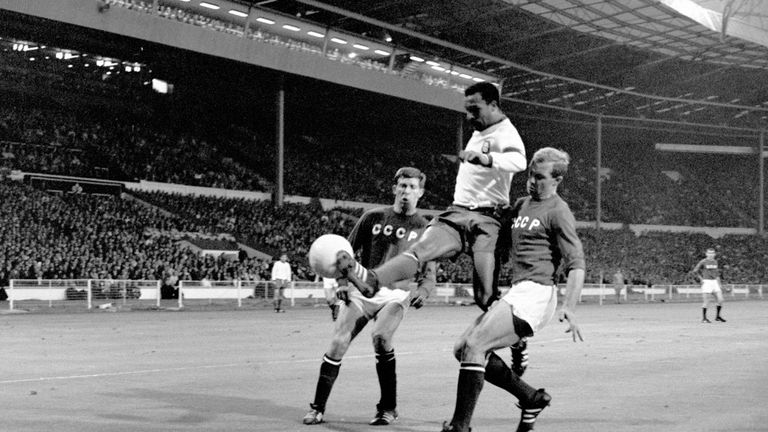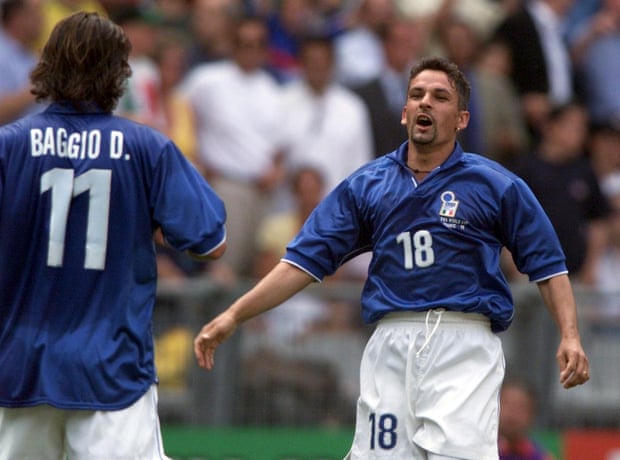Domingos Da Guia - 'The Divine Master'
He is considered the best Brazilian defender of all time, and the first to take risks and innovate his position. The way he played led a revolution in football, since the ball didn't 'burn' Domingos. He liked to keep it next to his foot, and he never punted it away, which is what most defenders at the time habitually did. Watching him was true entertainment, and if that isn't enough, he was also solid and consistent in his marking.
The Brazilian was a central marker of inmense category. Great with his timing, skillfull with the ball, and never resorting to violence, Da Guia became a champion with teams from three countries: Brazil, Argentina and Uruguay. The day he arrived to the port of Buenos Aires, a huge crowd was waiting for him. The Ebony statue, as he was known in Brazil, descended from the boat in an impecable suit of white linen, and he put all of us in his pocket forever.
'
South American Legend...
In the 30s and 40s, a good defender was the one who focussed only on stopping the opponent by any means necessary and punted the ball away without any technique. Then came a defender who could not only stop moves better than his contemporaries but could dominate the ball with a certain class and make passes to teammates in the midfield without haste. This genius could also dribble, initiate moves and exuded grandeur and the aura of a sovereign.
His football was simply magical, lush and unique. The star commanded respect and inspired fear in opposing strikers who were afraid of being made to look stupid. In just one year playing in Uruguayan football (arguably the toughest league in the world in the 30's), aged only 20, in his first season for Nacional Domingos quickly charmed everyone with his class. The defender quickly earned the nickname the press
"El Maestro Divino", with immense respect and admiration for his football. It was at the tricolor club that Domingos won his first title as a professional, the Uruguayan Championship with great performances alongside José Nasazzi (the captain of the Celeste the world champion in the World Cup 1930 - and the world's leading centre-back). Speaking of the world cup, Domingos lost the chance to play his first world cup in 1934 due to National, refusing to release the defender for selection unless Brazil paid 45 contos (a fortune for the time) to the club, which did not happen.
Following this dispute, in 1934, Da Guia returned to Vasco Da Gama and won another cup, the Carioca Championship LCF, with the team losing just two of 12 matches.
After the state title again defender was once again poached by a foreign team, this time Boca Juniors of Argentina, who had managed to sign the maestro for the season of 1935. In Argentina, Dominic was again flawless and won his third title in three years - the Argentine championship, forming a great defensive partnership with Victor Valussi and providing a "divine" protection to goalkeeper Yustrich. Boca was champion with 27 wins, four draws and only three defeats in 34 games, with 98 goals scored and 31 conceded - of course, the best defense in the competition. However, a disagreement with an Argentine referee brought the defender a suspension of two months, which led to renewed advances from Brazilian clubs. With proposals for Bangu, Flamengo, Fluminense and America-RJ, the Master preferred the red and black, to where it was in 1936 where he teamed up with the likes of Leonidas da Silva.
World Cup 1938 - Helps Brazil get to Semi Final, Makes All Star Team but suffers a 'Beckham' moment..
On June 16, 1938, in Marseille, Brazil faced world champions Italy in search of a place in the final. No Leonidas, the team lost a lot of quality in attack and failed to create scoring chances he needed. Faced with a superior opponent and very well armed by Vittorio Pozzo with Meazza, Piola, and Ferrari Colaussi, the Brazilian team succumbed and lost 2-1 because of Domingos da Guia losing his rag due to the foul play of Silvio Piola. When the game was 1-0 to Italy, the Brazilian defender did not hold the nerves in the face of provocative striker Piola, who kicked the Divine from the first whistle. He hit him a kick in the penalty area and Da Guia retaliated whilst the game was stopped, believing that nothing would happen. However, the Swiss referee saw the act of retaliation and gave a penalty! The Brazilians were unhappy, but to no avail. Meazza scored. In the second half, Brazil mounted a comeback but it was too late. Italy went to the final and Brazil had to settle for third place after winning by 4-2 to Sweden. The Guide Domingos himself commented the bid later:
"The game was paused. Piola hit me with a kick, I shot back. I admit that the judge was overly strict with me, but he could not hurt the team with the paused game. "Domingos da Guia.
Even without going to the decision, the Brazilian team was applauded in her back home and met with party for fans in what was the best team performance in the world. Domingos da Guia, even with the kick in Piola culminating in the defeat to Italy, was voted one of the best defenders of the tournament. A pity that the sweeper would not have more chances to shine for Brazil in the following years because of World War II. He was not given a chance to redeem himself at International level which was a great shame for a defender who was only 24 at the time. He lost 12 years worth of International football and was 36 by the time the 1950 World cup came round, where Brazil reached the final.
Continued Success at Club Level..
After the stress of the World Cup, Domingos da Guia came back in stunning style by winning an historic title with Flamengo. In 1939, he led them to the state championship, the first title after 12 barren years. The Rossoneri had lost just four of 24 matches and shone with the attack formed by Leonidas and Valido. In 1942 and 1943, with the strengthening of the emergence of Zizinho, Flamengo produced an unforgettable Carioca championship.
In 1942, there were 20 wins, five draws and two losses in 27 games, with 87 goals scored (best offense) and 29 suffered (best defense). The following year, an even better record with 11 wins, six draws and just one defeat in 18 games, with 51 goals scored and 18 conceded (again the best defense). The highlight was a merciless thrashing 6-2 of rivals Vasco, with a great attacking display by Perácio, Pirilo and Zizinho. It was the biggest win the Rossoneri handed out to a rival in the history of confrontation.
Retirement and Legacy..
In 1944, Da Guia fought with the board of directors, and was sent to São Paulo where he signed with Corinthians. At 32 and veteran Dominic no longer had the speed of before, but still possessed the class that so marked his career. In Timon, he did not win titles, would fill the eyes of fans with skills and great performances. After four years in the São Paulo club and 116 games played, Domingos da Guia hit his back to Bangu, his boyhood club and ended his career there in 1949.
The eternal defender died in 2000, aged 87, in Rio de Janeiro, and left the game of football a unique legacy of art, exuberance with the ball at his feet and unforgettable matches for a centre back, an icon and example for many generations to come after him. A Defender with the skills of a midfielder, divine by nature. That is the enduring legacy of Domingos da Guia - The Divine Master.






